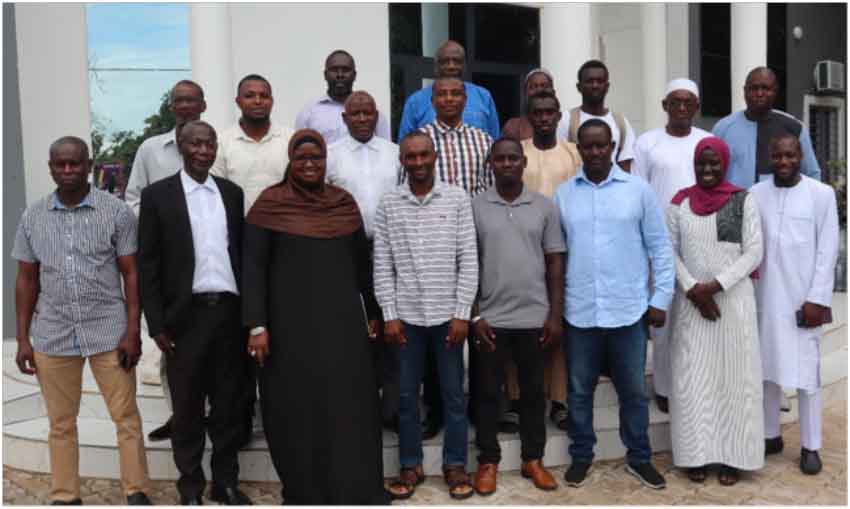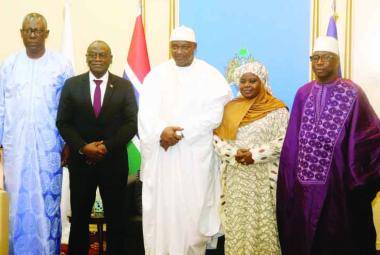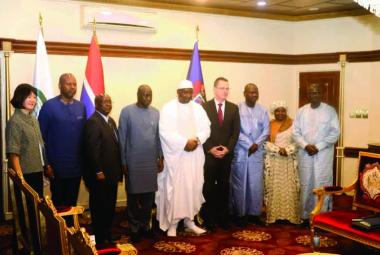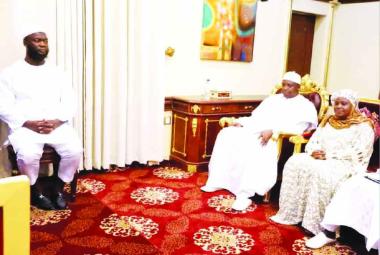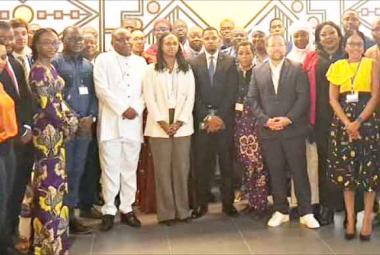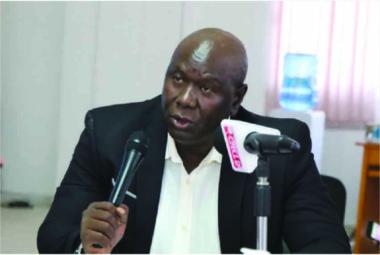By Fatou B. Cham
The GIRAV Project recently organised a two-day sensitisation workshop for contractors of its 40 model gardens, on environmental and social safeguards requirement compliance and the Labour Act 2023. The sensitisation for the 18 participants was held at the Central Project Coordinating Unit (CPCU) in Banjul.
On July 15, 2024, the Project signed an 18-month contractual agreement with six Gambian companies for the establishment of the 40 model gardens, dubbed Women and Youth-Led Agri-business Firms (WYLAFs).
The civil works involve the construction of perimeter fence with chain-linked wire, multi-purpose farm shed, and 2 toilets equipped with running water to promote WASH (Water, Sanitation and Hygiene). This sub-project is assigned to Tabanisita Company in West Coast Region (WCR), Lower River Region (LRR), North Bank Region (NBR) and Nema General Merchandise in Central River Region North (CRRN), Central River Region South (CRRS) and Upper River Region (URR).
Solo Darboe Construction Company is contracted to drill 40 bore holes and install solar and water pumping systems in WCR, LRR, NBR whilst MTK Company will drill 40 boreholes and install solar and water pumping system in CRRN, CRRS, and URR.
GAI Construction Company is contracted to install sprinkler system in 20 gardens in WCR, LRR, CRRS/N, and NBR whilst Chino Gam will install drip system in 20 gardens in NBR, CRRSN, URR and CRRS.
The Safeguards Unit of the GIRAV Project is responsible for sensitising employees of the 6 firms (mainly the technical officers including environmental and social officers and health and safety officers) on key environmental and social safeguard requirements, to equip them with the requisite knowledge and information to be become environmentally and socially compliant in carrying out their contractual works with the Project.
Speaking at the opening ceremony, Ramatoulie Hydara Sanyang, Director of Operation, GIRAV Project, said the activity was a follow-up on a series of similar engagements with diverse stakeholders including the Regional Grievances Redress Committees members who are mainly members of the Technical Advisory Committees, chaired by the regional governors in each of the 7 agricultural regions of The Gambia.
She mentioned that the grassroots sensitisation campaign which was jointly conducted by the project and the Regional Grievances Redress Committee in each of the 7 agricultural regions of the country targeted the 40 communities and local authorities where the 20 Women-led and 20 Youth-led modern Agribusiness firms (WYLAFs) will be established by the Project.
“Already more than eight hundred drawn from the 40 communities across the country have been sensitised on how to effectively prevent and address grievances in the GIRAV project intervention areas in their respective communities,’ she revealed.
She added that the implementation of all the sub-projects of the WYLAFs would create employment for hundreds or thousands of people who will be based in the intervention sites; thus create an environment that put women and children of the host communities at risk of Gender-Based Violence GBV) (including Sexual Exploitation Abuse (SEA), Sexual Harassment (SH) and Violence Against Children (VAC) which remain a global problem.
To address this global problem, Mrs. Hydara Sanyang mentioned that the World Bank in her investment projects put in measures to mitigate the problems of the GBV. Key among these measures is the preparation and validation of the environment and social safeguards instruments (ESMF, RPF, LMP SEP ESCP, SEA/SH) to be used during project implementation.
The Gambia Government is committed to engage and sensitise its stakeholders including the beneficiary communities, more especially the women and young girls who remain the most vulnerable group to GBV during project implementations.
The project will provide a toll-free number for the public to facilitate timely reporting of grievances to the relevant authorities for redress.

